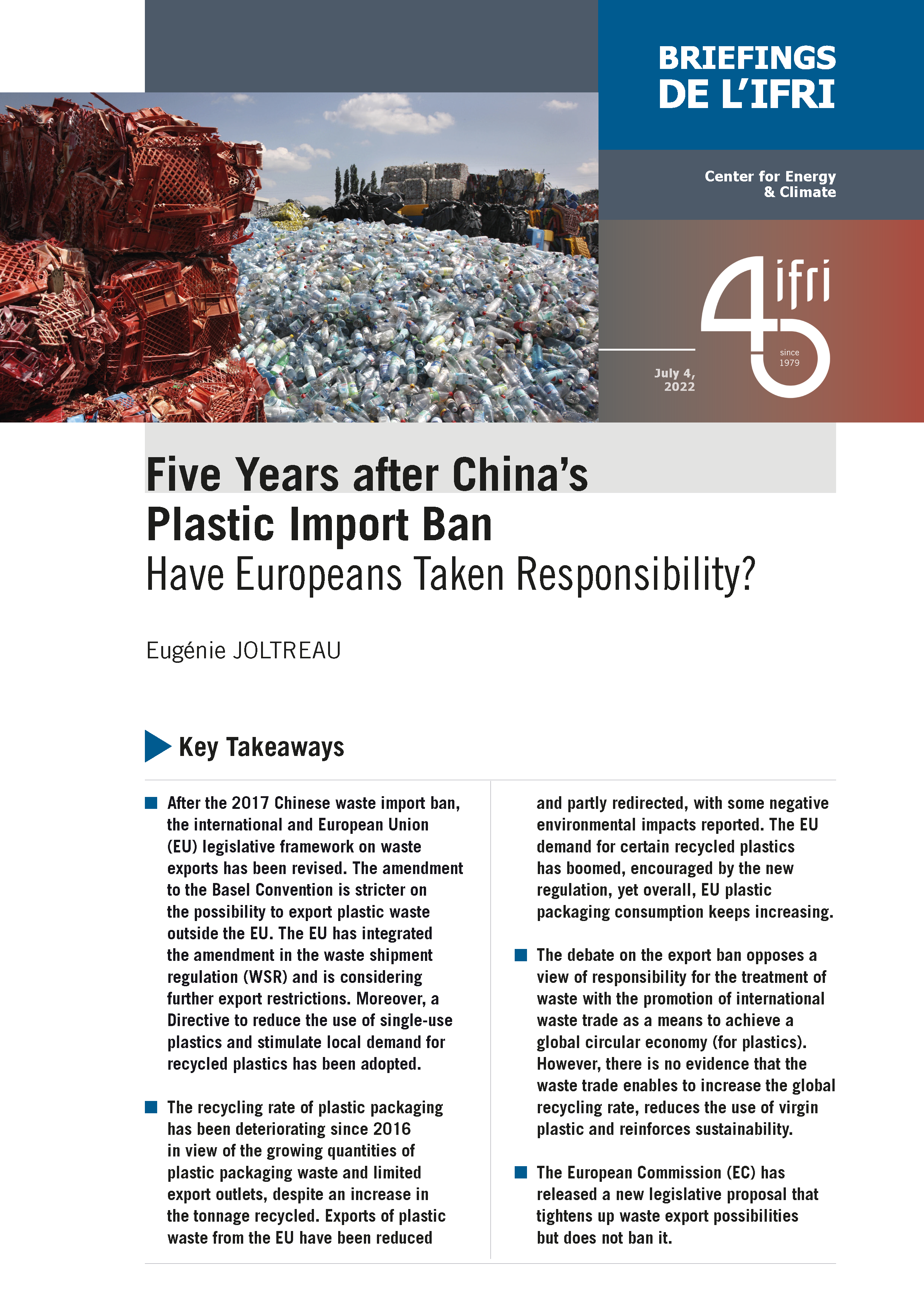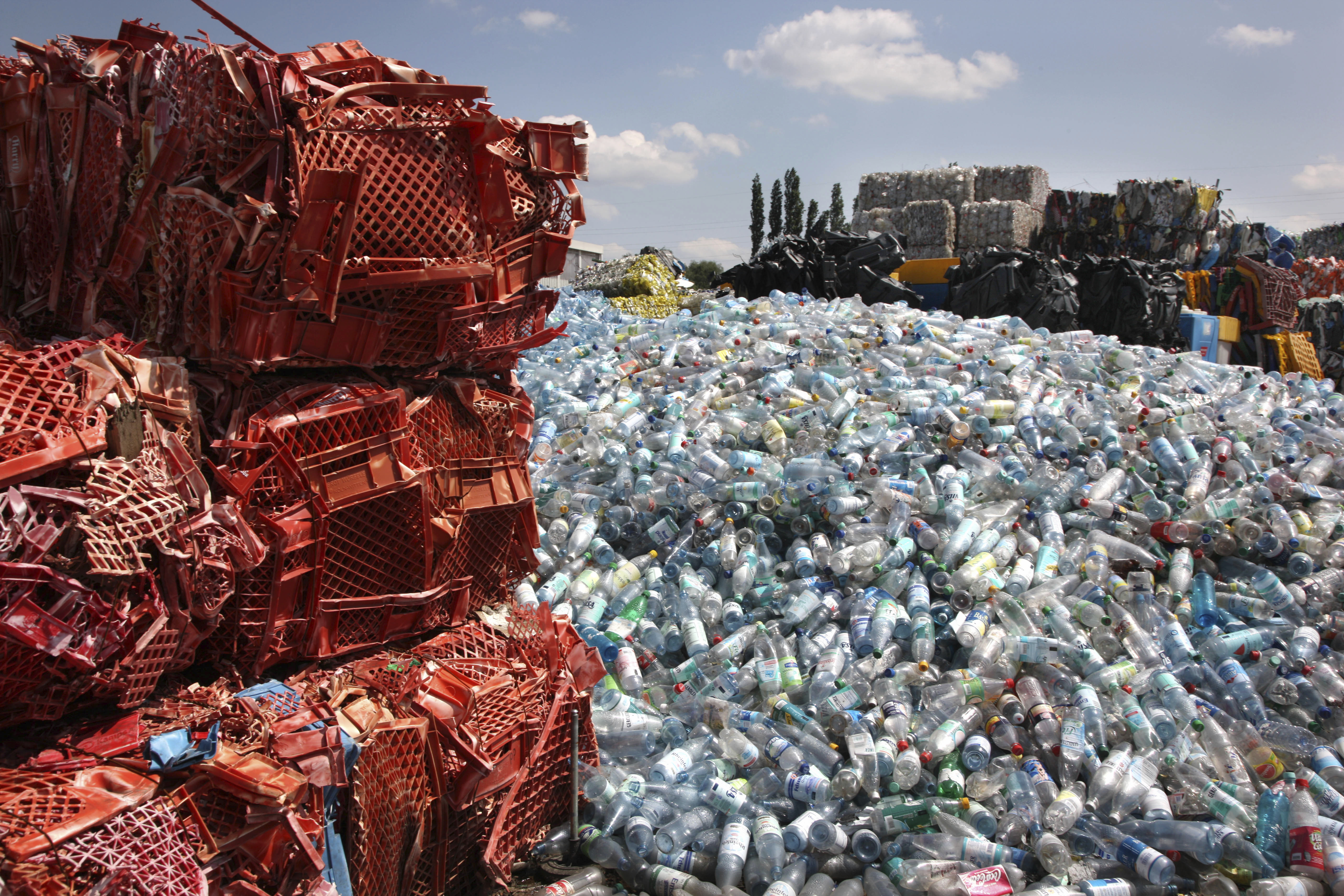Five Years after China’s Plastic Import Ban: Have Europeans Taken Responsibility?

After the 2017 Chinese waste import ban, the international and European Union (EU) legislative framework on waste exports has been revised.

• The amendment to the Basel Convention is stricter on the possibility to export plastic waste outside the EU, which has integrated the amendment in the waste shipment regulation (WSR) and is considering further export restrictions. Moreover, a Directive to reduce the use of single-use plastics and stimulate local demand for recycled plastics has been adopted.
• The recycling rate of plastic packaging has been deteriorating since 2016 in view of the growing quantities of plastic packaging waste and limited export outlets, despite an increase in the tonnage recycled. Exports of plastic waste from the European Union have been reduced and partly redirected, with some negative environmental impacts reported. The EU demand for certain recycled plastics has boomed, encouraged by the new regulation, yet overall, EU plastic packaging consumption keeps increasing.
• The debate on the export ban opposes a view of responsibility for the treatment of waste with the promotion of international waste trade as a means to achieve a global circular economy (for plastics). However, there is no evidence that the waste trade enables to increase the global recycling rate, reduces the use of virgin plastic, and reinforces sustainability.
• The European Commission (EC) has released a new legislative proposal that tightens up waste export possibilities but does not ban it.
Download the full analysis
This page contains only a summary of our work. If you would like to have access to all the information from our research on the subject, you can download the full version in PDF format.
Five Years after China’s Plastic Import Ban: Have Europeans Taken Responsibility?




